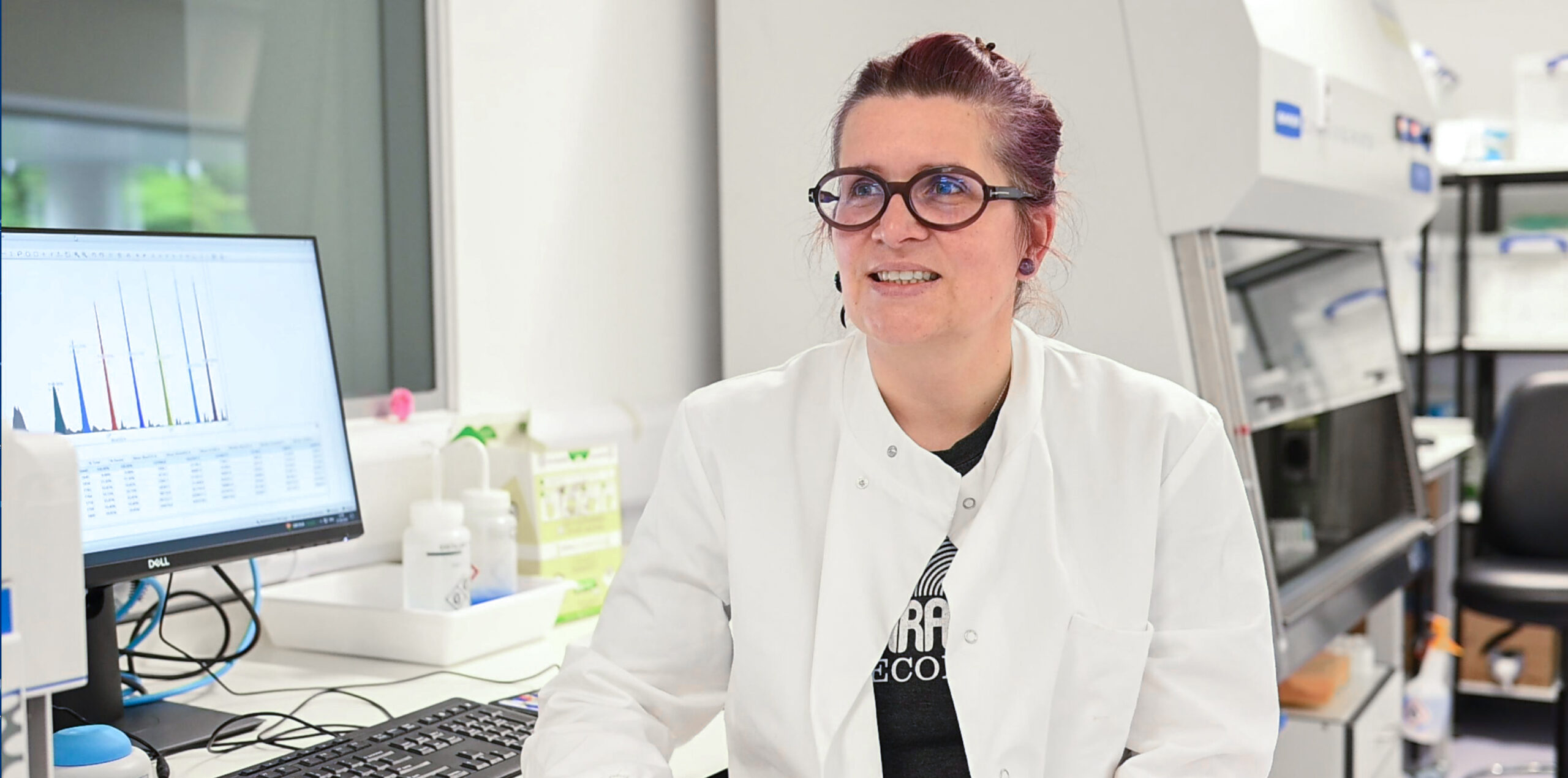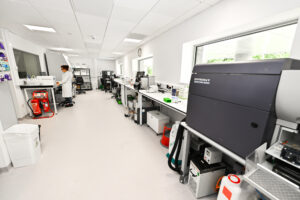Technician Week 2024: Lizzie Freyer – Flow Cytometry Facility Manager

Facility Manager Lizzie Freyer works alongside Flow Cytometry Specialist Michael Rennie in a state-of-the-art lab in the new North East Building, which they moved to in April from three separate rooms in the West Building.
What was your route to becoming a technician?
I studied in Germany and by degree I’m a Biotechnology Engineer. I got into flow cytometry by accident. I had to write a thesis and one of my supervisors knew a lab in Seattle which was looking for someone to work in for a year. I had no idea about flow cytometry, I just wanted to go to Seattle for a year. I learned how to use flow cytometry in a clinical lab.
I finished my degree and I didn’t want to stay in Germany, so I moved to Edinburgh to work as a technician in Little France using flow cytometry. When this facility opened up, they had just bought the Aria and needed someone to run the service for them. That was in 2008.
Initially, I only had the one instrument, but over the years I got two analysers and another two sorters and expanded the facility. They are named after characters from horror movies. We have Christine from Stephen King – she’s very ill-tempered and has jealousy issues; HAL 9000 from Space Odyssey, who was a very antagonistic instrument when he first started; Frank from Donnie Darko, who always behaves; and Bishop and Ripley from Aliens.

Lizzie Freyer working in the Flow Cytometry facility
What does your typical working day look like?
We come in in the morning and we do the instrument maintenance – turn them on, calibrate them and make sure everything is ready for the researchers.
Most of the time we spend operating the sorters. We also teach the researchers how to use the analysers and we help with trouble shooting. It’s all very one-to-one. Everybody has different experiments and different demands. That’s what I enjoy about it. There’s quite a big variety in what we do and the kinds of samples we process.
We have to understand how the experiments work and we have to apply that to make sure the scientists get the best from their data when they use our technology.
What’s your favourite part of the job?
My favourite part is when something works out for the scientist and they get good results and good data. I do like the troubleshooting as well. I like it when we can be part of their journey towards their research question.
What difference does your new lab make to your work?
We were separated over three – or two-and-a-half – rooms and it was difficult to communicate. There was also very little space. When people were working in a different room and needed help, they had to come to another room to find a staff member.
Our new environment is more comfortable to be in. It’s much more communicative now and we’re quicker helping the researchers. We feel more productive. It’s nicer to have a better connection with Michael and with the researchers as well.
I enjoy that we’re both part of so many research groups and we get to see a lot of different projects.



